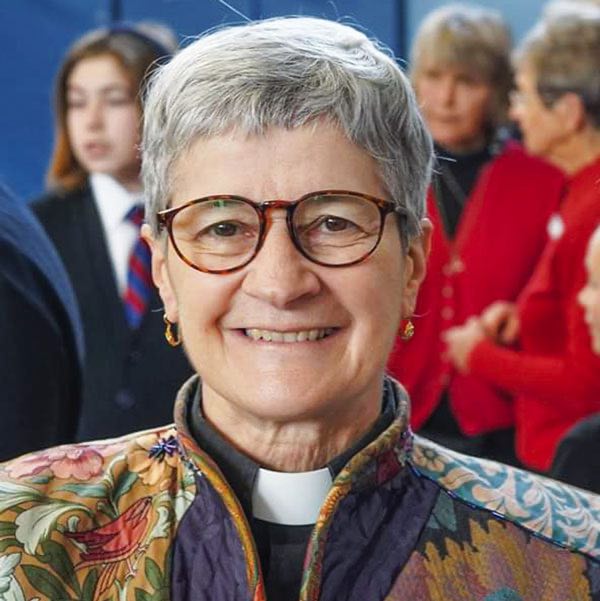My Journey is a regular feature profiling clergy in the diocese
As the child of Italian immigrants in Winnipeg, I was raised Roman Catholic and did not really foresee the possibility of becoming a priest. But when I was 19 years old, after casually telling the priest at the Catholic parish I’d attended since early childhood that I liked his sermon, he thanked me, and asked when I was going to give preaching a try. So I did, and it was fun – scary, but fun. Over the next two or three decades I had a few more opportunities to preach, and usually got good feedback. I also loved liturgy and pastoral care, but the post-Vatican II church became more conservative, with no room for women in ordained ministry; and after the papal Dominus Iesus declaration in the year 2000, with its message of Catholicism being the only truly valid Christian church, I began to look for the opportunity to become Anglican – something I’d been thinking about for 30 years.
Prior to becoming Anglican, I finished a master’s degree and a PhD in religion at the University of Manitoba and did some post-secondary teaching, followed by work as a lay ministries program director at Newman Theological College in Edmonton from 1999 to 2004. Once I became Anglican and my discernment process for ordination began, I did a year of Anglican Studies at the College of Emmanuel & St. Chad in Saskatoon. I was ordained deacon in Edmonton in 2005, and priest in 2006.
What is the greatest challenge in the Anglican Church? That’s a difficult and often subjective question. Having come to Anglicanism at about age 50, I see more of its benefits than its shortcomings – benefits such as taking the middle path between Catholicism and Protestantism; and gender-equal ordination; as well as the relative autonomy of national churches, their rediscovery of some Celtic roots, and their strong foundation in literature, music and the arts. My main essay in seminary was on “adiaphora,” as promoted by Richard Hooker in the 16th century, which is a way of seeing various Christian practices and doctrines as “matters indifferent.” The practice of communion, for example, could be used in some Anglican churches, but not others, without causing schisms, divisions, conflicts and burnings at the stake. It was a gentle but brilliant approach originally designed to mollify Anglicans coming from Catholic and Puritan roots. I loved how this approach made people more tolerant and cooperative than other Reformation approaches. I think this approach (by different names, or none) remains intrinsic to best Anglican practice today.
It’s unusual to come from Italian ethnicity in the Anglican priesthood, although it comes in handy to blame for an occasional lack of subtlety and other personality quirks. I think many children of immigrants have a greater appreciation for their privileges as Canadians, when compared with what was available in the “old country.” Typical of immigrants, my parents were frugal and hard working – traits that I came to appreciate more as I got older, although I wasn’t too thrilled with old-country teenager restrictions, especially for girls.
Since house prices and education were much cheaper in my early adult decades, I was privileged to further my studies while working part time and raising children. I often worry that today’s young and middle-aged adults are too debt-laden and stressed, and I wish they could have the options that I did at that age. As a senior now, I enjoy living with my canine companion in a mobile home park in Langford, in Greater Victoria – surrounded by trees. I feel grateful for some family here, and others in Winnipeg, and for many friends, along with an expanding spiritual family. I love many features of interim ministry and feel privileged to be in it post-retirement.
My graduate studies focused mainly on Franciscan love of creation and liberation theology, and on ecology and world religions. I’ve also done community fellowships at UVic’s Centre for Studies in Religion and Society (CSRS), most recently on spirituality and addictions.
Upon reflection, I feel that my journey was one in which doors opened, and I “simply” walked through them. I may have wanted different doors to open at times, but in retrospect I can see that the Holy Spirit, in her wisdom, was always my GPS, whether I knew it or not. She loves to surprise us, and my life has been rich with such surprises.



